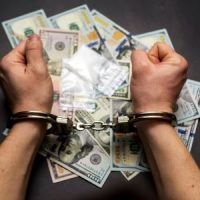The New Frontier in the War on Drugs

One of the most surreal moments of the War on Drugs occurred in December 1970, when Elvis met Nixon in the White House. To this day, the picture of a somewhat befuddled Nixon shaking hands with a velvet-clad Elvis is the National Archive’s most requested photograph. In those days, the War on Drugs was much less complicated. It was relatively easy to separate the good guys from the bad guys and legal substances form illegal substances. Now, that’s no longer the case, as outlined below.
In fact, proving a substance was illegal is usually a prosecutor’s hardest job in drug cases, and the best place for a Leesburg drug crime lawyer to successfully challenge the state’s evidence. If this challenge is successful, an attorney can normally get the case thrown out of court, convince a jury to return a not-guilty verdict, or arrange a plea to a lesser included offense.
Field Tests
Officers invariably testify that a substance “field tested” positive as an illegal substance. Most jurors assume a field test is like a field dressing for a battle wound. The field test is not as effective as a chemical test, but it’s in the same league.
A Leesburg criminal defense lawyer must quickly debunk this belief, often during the jury selection process. Law enforcement field tests are usually sensory tests. If it looks like drugs and feels like drugs, it’s probably drugs.
These field tests simply aren’t reliable. A few years ago, a Florida man spent several months in jail after officers arrested him for heroin possession. A subsequent chemical test proved the “heroin” was Tide laundry detergent.
Chemical Tests
Continuing this theme, there’s a difference between accurate and reliable information. A broken clock is accurate twice a day, but the information it provides is clearly unreliable.
Police chemical tests often begin with a false assumption, which is that the field tests results were accurate. Therefore, in the tester’s mind, the chemical test should confirm the field test results.
When scientists begin with preconceived notions, their results are questionable. Part of the scientific method requires the testers to begin tabula rasa (with a blank slate).
Incidentally, police technicians usually aren’t “scientists.” Instead, they usually learned almost everything they know during a brief, police-sponsored seminar. For this reason, a Leesburg criminal defense lawyer generally asks an independent, full-time professional scientist, who has much more credibility than a police tech, to re-test the substance.
Sometimes, this test contradicts the original results. Other times, the re-test shows that the substance was so heavily diluted that the quantity of illegal substance doesn’t match the charging instruments. That technicality could result in dismissal.
Special Issues in Marijuana Cases
Illegal marijuana is physically indistinguishable from legal hemp. You read that right. Marijuana is still illegal to possess if the quantity is large enough. Only an expensive THC content test distinguishes marijuana from hemp.
When Virginia lawmakers partially legalized marijuana possession, many law enforcement agencies got rid of their THC content test machines or terminated their contracts with private firms that perform these tests. So, in many cases, this critical evidence is unavailable.
Count on a Detail-Oriented Loudoun County Lawyer
There’s a big difference between an arrest and a conviction in criminal law. For a free consultation with an experienced criminal defense attorney in Leesburg, contact Simms Showers, LLP, Attorneys at Law. We routinely handle matters throughout Northern Virginia.
Source:
washingtonian.com/2020/12/21/elvis-met-nixon-50-years-ago-today-in-one-of-the-weirdest-white-house-meetings-in-history/
